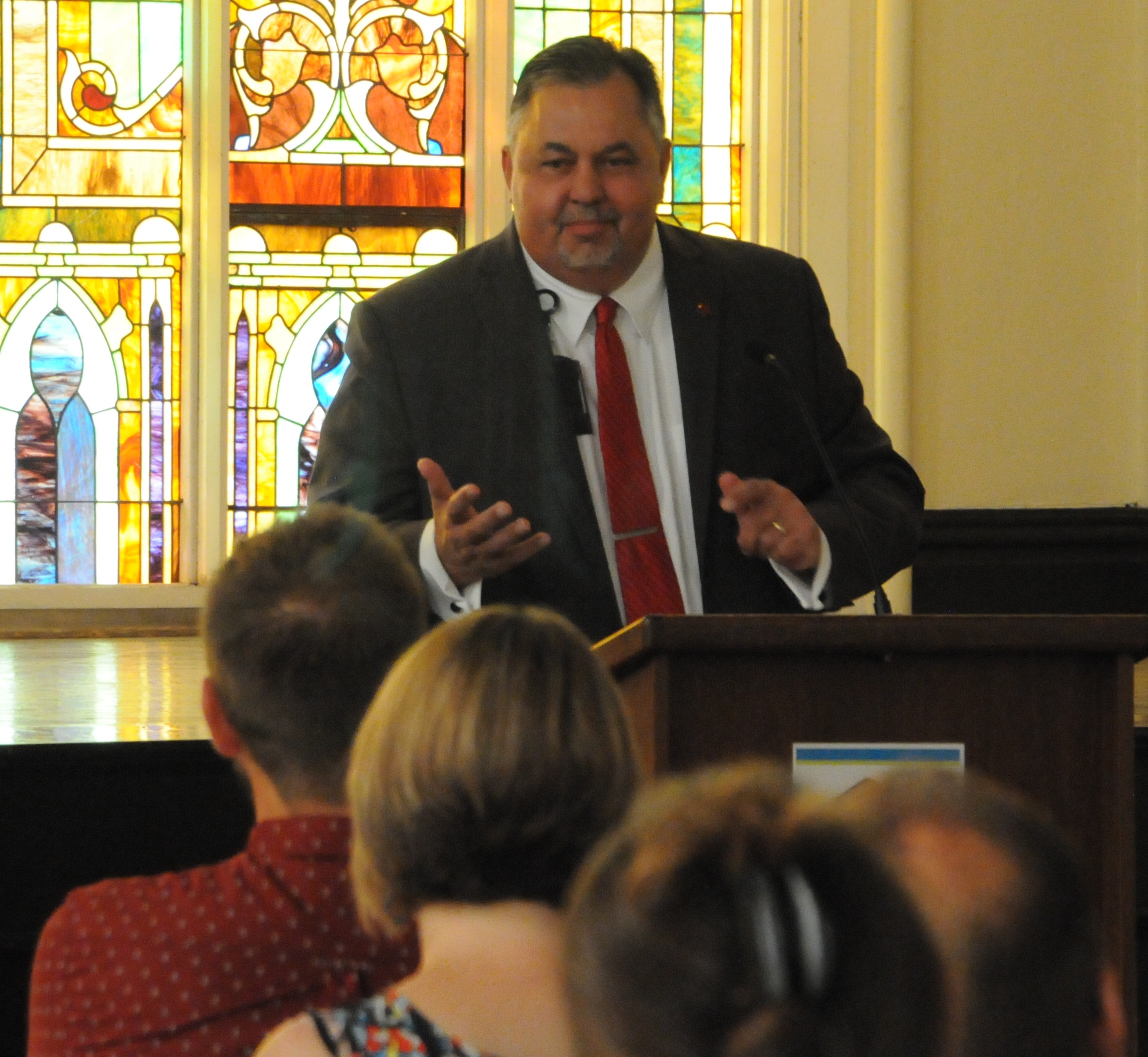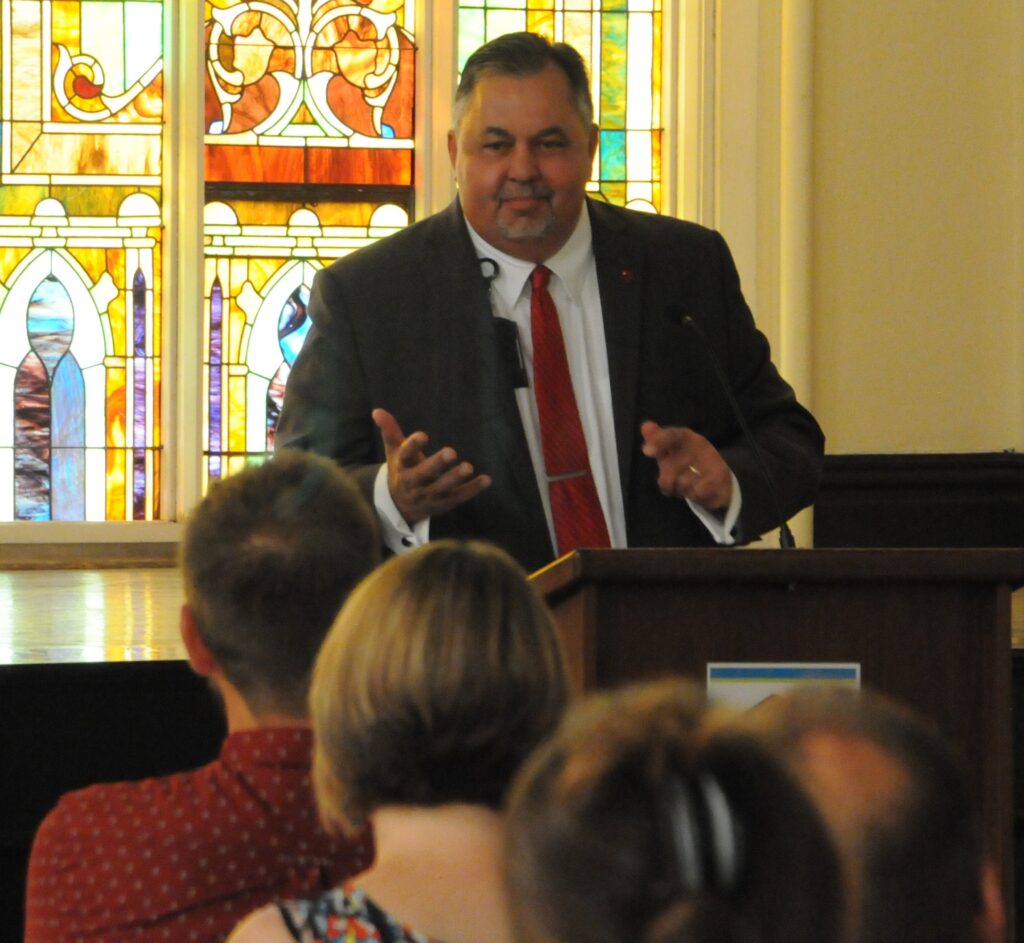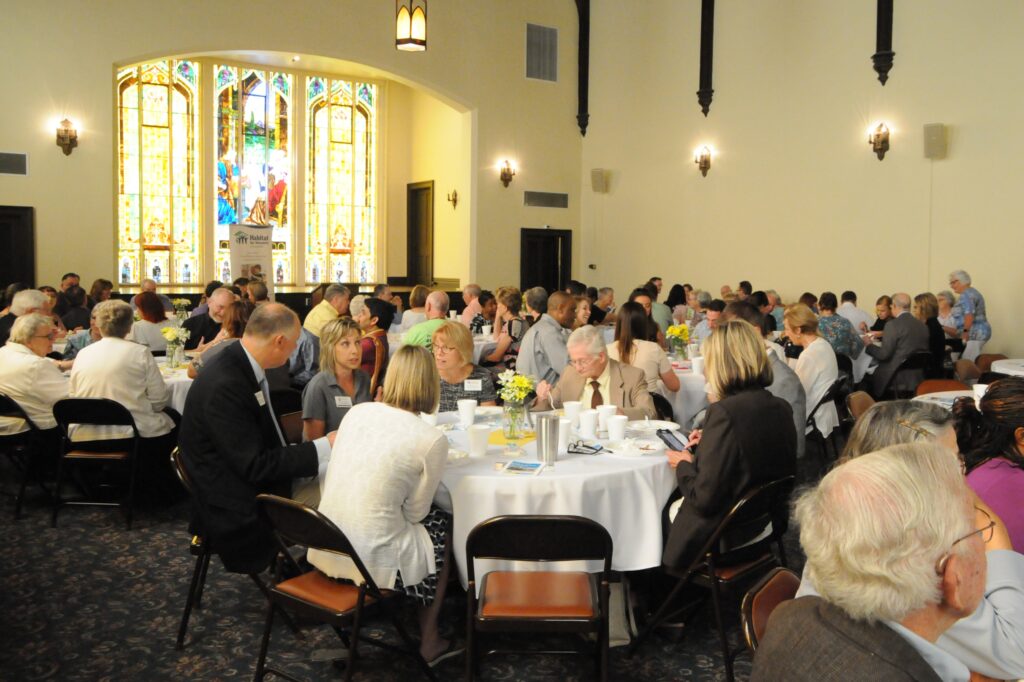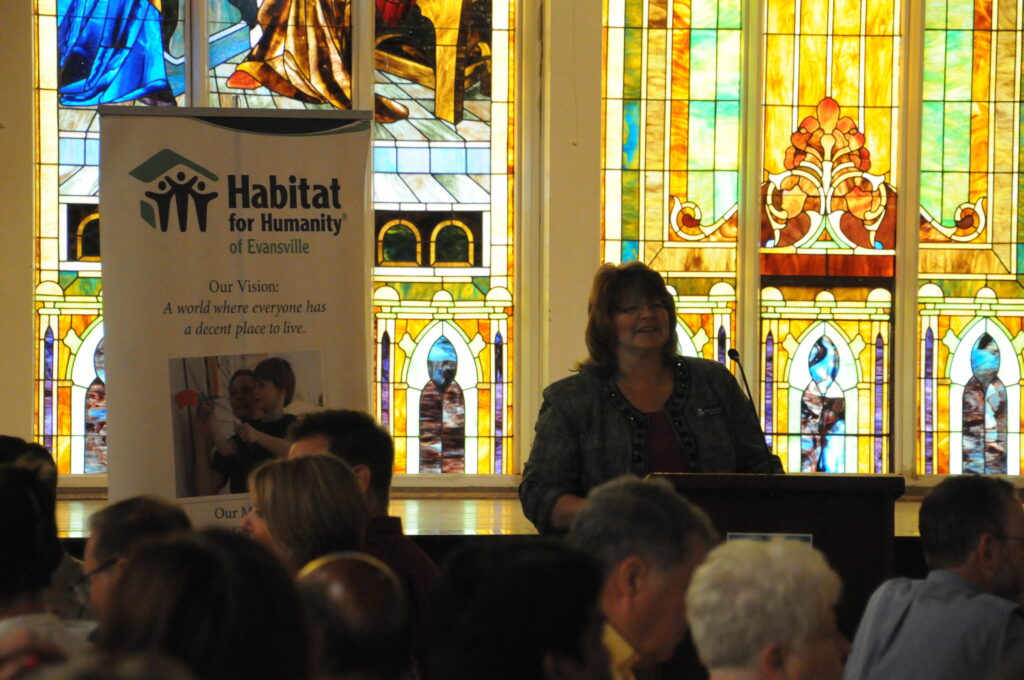By Megan Erbacher
Recent studies have indicated your zip code is a better indicator of your overall health than your genetic code, Dr. Steven Becker recently told a crowd of community members.
About 150 interfaith leaders, Habitat volunteers and donors gathered at Trinity United Methodist Church on June 20 for the 16th Annual Faith in Action Breakfast, hosted by Habitat for Humanity of Evansville. Dr. Becker, Director and Associate Dean and Koch Professor of Medicine at the Indiana University School of Medicine — Evansville, served as this year’s featured speaker.

Dr. Becker, who said he was flattered to speak, discussed the relationship between housing security and the health of the local community. After the event, tours of the Stone Family Center for Health Sciences were offered.
Beth Folz, Habitat executive director, said the event is a celebration that brings together a diverse group of all the faith communities who support Habitat and other nonprofits in the community. A different faith community hosts the breakfast each year, Folz explained, with a new speaker on a topic revolving around social justice issues and housing.
“It gives us a chance to really honor each faith community,” she said.
Mayor Lloyd Winnecke introduced Dr. Becker and took a moment to talk about the impact of organizations like Habitat on the community. Winnecke said the Stone Family Center for Health Sciences is groundbreaking, forward-thinking and the culmination of vision and work by many people.
“A lot of us pulled together to make it happen, but (Dr. Becker) was the driving force,” Winnecke said.
The Stone Family Center for Health Sciences is completing its first year of operation. The center’s mission is to “prepare the compassionate, empathetic, collaborative and civically engaged healthcare professionals of the future who will impact Southern Indiana and beyond for many years.”Dr. Becker has been a practicing radiologist in the greater Evansville area since 1986. He said affordable safe housing and affordable quality healthcare are two of many important factors in serving the underserved communities in our region. He said improving the lives of the most vulnerable in our community involves the public and private sector, nonprofit and faith-based organizations and numerous volunteers.
One in four families in the country is living two-to-three paychecks from being without a stable place to live, according to Dr. Becker. So, what’s the correlation between housing and wellness?
“It’s not surprising to know that housing insecurity can easily be related to chronic health conditions such as diabetes and cardiovascular heart disease,” he said.
Folz hoped everyone left the breakfast knowing safe housing significantly impacts health.
“Among other important things like education and stability for our family, (the breakfast) really is a chance for people to know housing isn’t just about a place to lay your head at night, it’s much more than that,” Folz said. “It affects every aspect of our lives.”
Folz suggested ways to help through volunteer opportunities including serving on a committee, answering phones or hammering nails on job sites.
Habitat also relies “almost totally” on donations to build homes, Folz explained, and the nonprofit has a “huge goal” to build 20 homes a year. To do so, she said Habitat must raise $2 million a year, so supporting Habitat financially makes a big difference.
“There is truly something for everyone to volunteer with Habitat . . . . Evansville is one of the most generous places in the country,” Folz said. “We couldn’t do this important work without the support.”
Trinity United Methodist Church Rev. Dr. Todd Gile closed the breakfast with prayer.



